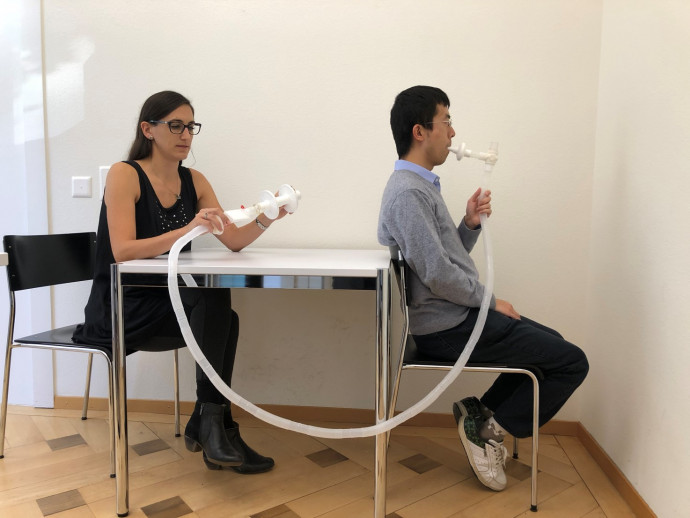Olivia Faull

2019: Dr Olivia Faull, University of Otago, has been awarded a Rutherford Discovery Fellowship for research titled: ‘Breathing and anxiety: Understanding the miscommunication between brain and body, and how best to treat it’
Published 10 Whiringa-ā-nuku October 2019
Biography

Dr Olivia Faull. Photo: Supplied (CC BY-SA 4.0)
Dr Olivia Faull’s research interests are in interoception and conscious perceptions of breathing. She currently holds a Marie Skłodowska-Curie Postdoctoral Fellowship at the University of Zurich where she is looking to apply predictive coding models to better understand how the brain perceives and learns about changes in our breathing. Dr Faull obtained her DPhil in 2015 from the University of Oxford, after which she held a postdoctoral position for two years at Oxford. She will be returning to Aotearoa New Zealand to take up her Rutherford Discovery Fellowship at the University of Otago.
Research Summary
Anxiety is one of the most common mental health issues. Debilitating anxiety symptoms that have a negative impact on quality of life can be present across a spectrum of diseases and disorders. One key component of these symptoms is thought to be a miscommunication between the brain and the body, with an impaired ability to monitor bodily state proposed to exist within a host of conditions including anxiety and depression. Our breathing can offer a unique gateway into understanding these symptoms and conditions. Our awareness of our breathing constantly switches between conscious and subconscious perception, and its absolute necessity renders it incredibly frightening when it is insufficient or out of control. Crucially, the accessibility and ability to consciously manipulate our breathing make it very useful to help us understand the symptoms of anxiety, and how existing treatments may alter our body perceptions.
This project builds on the breathing-related measurement techniques and innovative computational models Dr Faull has developed, allowing her to examine breathing perceptions within clinically-relevant anxiety. Dr Faull aims to understand how people suffering from anxiety experience changes in breathing perception, and identify the mechanisms through which currently available treatments act. She will employ novel breathing tasks before and after two interventions, which are known to be effective against anxiety, while also carrying out functional brain imaging on a specific set of study participants. These datasets will allow her to apply state-of-the-art computational models of perception, investigating what, where, and how anxiety can interrupt the brain’s processing of internal bodily states, and how we might look to treat these disruptions in the future.
